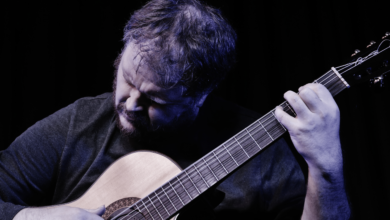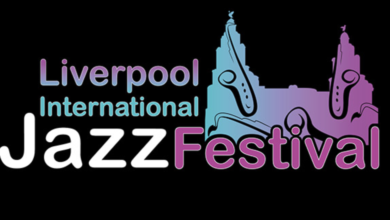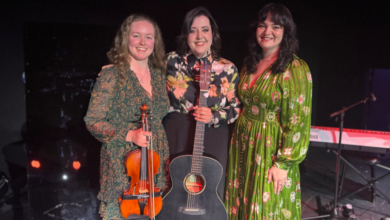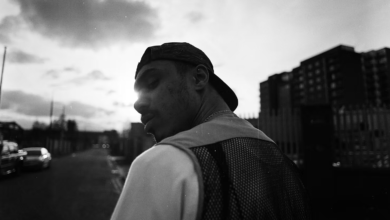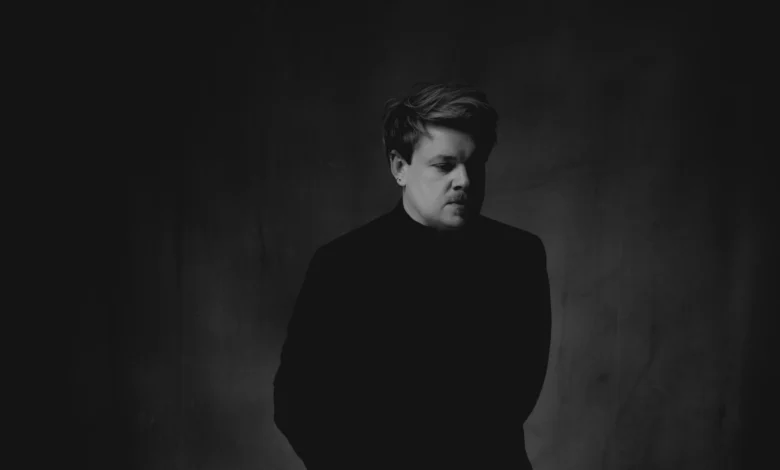
In Conversation – Mark Simpson
An Architect of Sound: From Liverpool’s Streets to the Global Stage.
Hailing from Liverpool’s vibrant and culturally rich landscape, composer and clarinettist Mark Simpson returns to his roots as the Royal Liverpool Philharmonic Orchestra’s (RLPO) new Artist in Residence. This residency marks a significant artistic homecoming for the musician, whose journey from a young Liverpudlian with a free clarinet to an internationally acclaimed composer is a testament to both his prodigious talent and the city’s robust classical music infrastructure.
Simpson’s relationship with the RLPO began as a “wild teenage fantasy,” watching the orchestra perform and imagining his own music being brought to life by their “fantastic musicians.” That dream is now a reality.
In this exclusive Liverpool Noise interview, Steve Kinrade uncovers the personal and professional significance of this residency, which kicks off with the UK premiere of his viola concerto, Hold Your Heart in Your Teeth.
He also explore’s the profound impact of Liverpool’s phenomenal early music support system on his career, his dual life as a composer and performer, and the influences that have shaped his unique musical voice. Simpson, who made history as the first person to win both BBC Young Musician of the Year and BBC Proms/Guardian Young Composer of the Year, shares invaluable insights and advice for the next generation of aspiring musicians, reflecting on his own path and his deep-seated connection to his hometown.
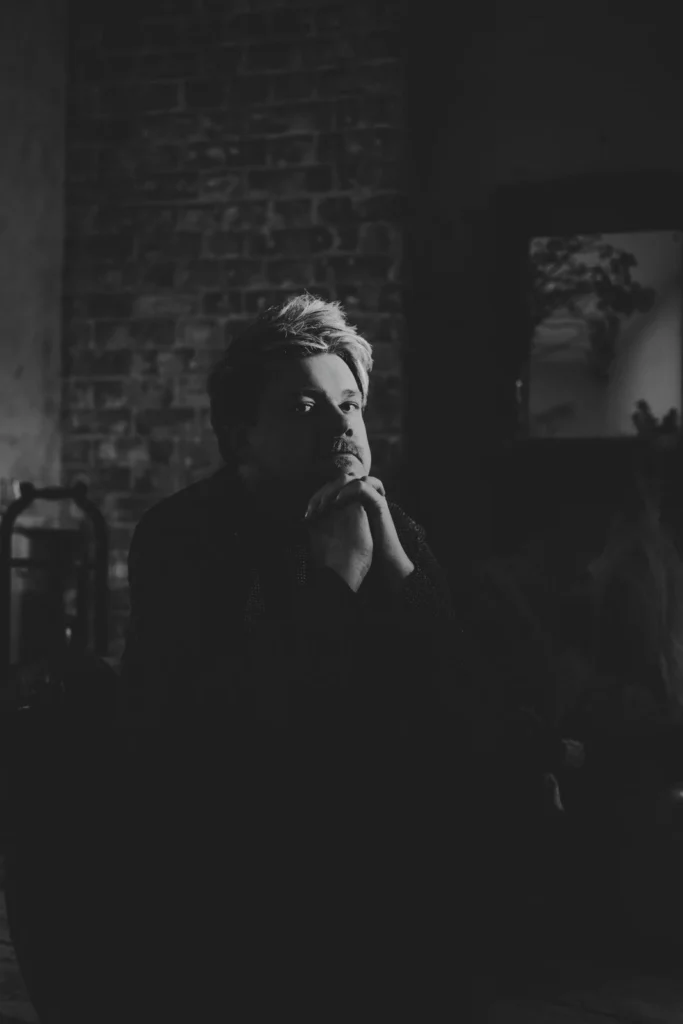
Your new residency with the Royal Liverpool Philharmonic Orchestra brings you back to your hometown. What does it mean to you, personally and professionally, to have this kind of artistic homecoming, especially with the orchestra that played such a pivotal role in your early musical life?
MS: It is essentially a realisation of an almost impossible dream. With the odds stacked against me statistically speaking, I have been able to establish myself as a composer working in the classical ‘art music’ tradition at an international level. The seeds for this life were sown as a youngster watching the incredible RLPO perform over the years. I would sit in the concerts projecting my own music over what I heard, imagining myself being performed by these fantastic musicians. It was a great wild teenage fantasy of mine that has now become a reality.
You’ve spoken about the “phenomenal” classical music infrastructure in Liverpool that you experienced growing up. How has that early support from the local council and the Liverpool Music Support Service shaped your career, and what do you hope to impart to students during your upcoming outreach work?
MS: Without that early support of the Liverpool local music support service, in the form of a free instrument, free lessons, and later a brilliant infrastructure of ensembles and orchestras across the city, I’m not sure I would have found my way to classical music. Looking back on it, the access to music was incredible. I don’t know what the infrastructure is like now, I don’t know if someone with my background would be able to make that leap into the profession today.
The best advice I can give any young musician is to fall in love with music for life. Go to as many live concerts as you can. Join ensembles/orchestras/play as much as you can, make friends and see it as a community to be part of, and understand it not as a race or a competition, but as a way in which you can learn about yourself within the world.
The UK premiere of your viola concerto, Hold Your Heart in Your Teeth, opens the season on the 25th September. The title is inspired by a Romanian proverb about facing fears. How did this proverb influence the music, and what do you hope the audience takes away from the piece?
MS: I found the title halfway through writing the piece. The closest idiomatic translation we would have in English would be: “bite the bullet”. But that doesn’t quite capture the savage imagery of the heart in the teeth in the Romanian which I think is very powerful and evocative. I thought the sentiment of the proverb matched not only the nature of what I was trying to express in the music but also what it means for a performer to physically undertake playing a concerto.
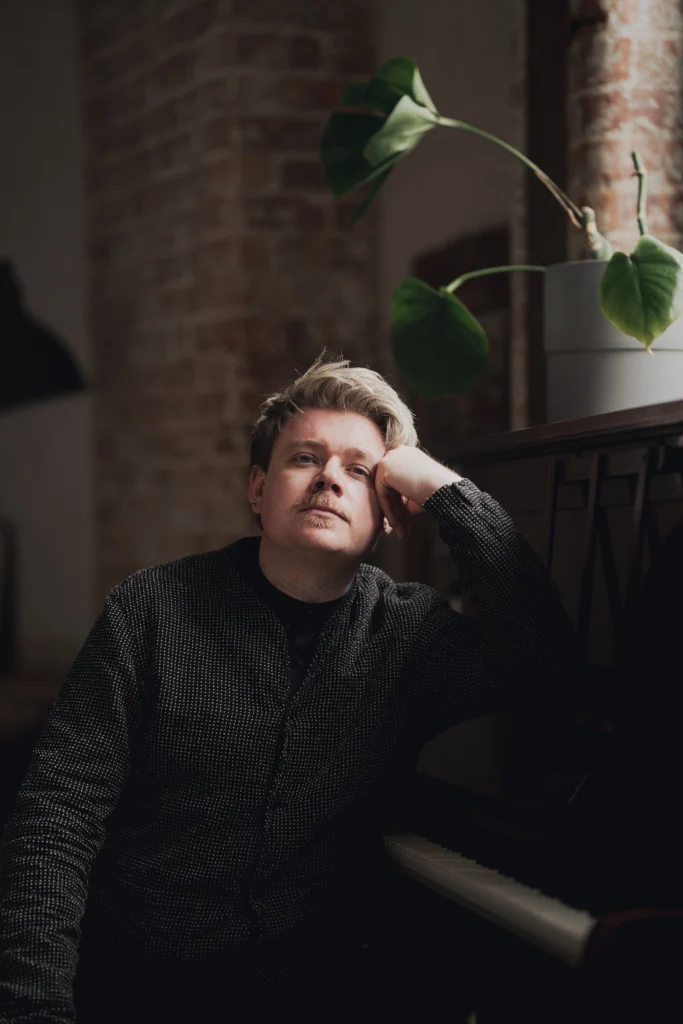
Hold Your Heart in Your Teeth was first performed in Berlin with a different orchestra and conductor. How does the experience of hearing a major work performed by a different ensemble and under a new conductor, Andrew Manze, affect your perception of the piece?
MS: It’s always a thrill hearing your music performed by new interpreters. I’ve always admired Andrew Manze’s work, and remember a very powerful Beethoven 9 with the RLPO I saw many years ago. He famously has a great rapport with the orchestra and I’m tremendously excited to hear how this great connection will manifest in the U.K. But this piece is Timothy Ridout’s, and I’m so excited to hear him play it again.
As a world-class clarinettist, you’ll be performing as a soloist during your residency. How do you balance the demands of composing and performing? Do these two roles influence each other?
MS: My performing and composing practices have always been inextricably linked. I started playing at 9 and writing at 12. I am the performer I am because compose, and I am the composer I am because I perform. Both are ultimately reaching for the same goal but coming at it from different angles. Balancing these two practices has become a matter of priorities and learning (very reluctantly!) to say ‘no’. But I could not live without performing, as much as I could not live without composing.
You were the first person ever to win both BBC Young Musician of the Year and BBC Proms/Guardian Young Composer of the Year. Looking back on that significant achievement, what advice would you give to young musicians today who are navigating the path you once took?
MS: What advice would I give to young musicians following my path? Take every opportunity to perform, take every opportunity listen to live music, find a great library with access to musical scores and books, and live in there, devour everything, compose, and read endlessly. Try to find opportunities to have your music performed by musicians and work hard, aim high and always try and be inspired.
The final concert in your residency features you as the soloist in John Adams’s Gnarly Buttons. Adams has been cited as a major influence on your work. What is it about his music, and this piece in particular, that resonates with you so deeply?
MS: I’m really looking forward to performing Gnarly Buttons by John Adams. John’s music had a powerful impact on me as teenager. The vibrancy of the orchestral palette, the rhythmic drive, the beautiful melodic contours had a directness that I found intoxicating. I also remember being influenced by his use of harmony and harmonic rhythm in works such as Harmonium.
That had a big effect on me for a while technically. His music had the allure of the harmony in the minimalism of Reich and Glass but took it further. I remember purchasing a CD copy of El Niño on sale from the HMV in Liverpool which left an indelible mark on me. I built the rest of my music collection in there and remember collecting CD’s of composers such as Thomas Adés, Mark-Anthony Turnage, James Macmillan and Ligeti – all of whom influenced me very deeply. Those teenage years are vital for filling the well of influence. I had to know it all. And I knew I wanted to compose.
You mentioned growing up in a working-class family in Liverpool and how you were an “anomaly” in the classical world. How has your background shaped your identity as a composer and performer, and do you feel a sense of responsibility to represent that background?
MS: There have been times when orchestras have performed my music, and the publicity will feature comments like: “Come and hear Mark’s music, he wears his heart on his sleeve and tells it like it is!”. And I remember reading that and thinking: “Do I know this person”? Because that is very much my personality! What I noticed is that they were describing character traits that are not actually unique to me, but of most scousers! Then I realised that perhaps I am actually channelling into my music parts of my personality that are quintessentially Liverpudlian. There’s something in the water, as they say.
During your residency, you’ll be leading workshops with secondary school students. What do you hope to share with them about the journey of a professional musician, and what advice would you give to a young person considering a career in the arts?
MS: There are many pathways a career in the arts can take you. Either in front of or behind the stage. Try and have a clear goal of what you want to achieve by understanding the industry as best you can from an early age. Go to concerts, speak to people, don’t be afraid to ask questions, do your work experience in cultural institutions.
Given your journey from a young Liverpudlian with a free clarinet to the RLPO’s Artist in Residence, what do you hope this residency will symbolise for your career and for the next generation of local musicians?
MS: I have had a long standing relationship with the Royal Liverpool Philharmonic throughout my career but to be featured in this special way as ‘Artist in Residence’, in five concerts across the seasons, is a huge gesture of support and belief from the orchestra in me and my work. And a huge honour for me. It’s a chance to show the city of Liverpool and the great audience of the RLPO how far I’ve come since they last saw me. What would be fantastic is if through my work I was able to inspire young musicians in the way that I was so inspired back when I was a teenager attending the brilliant concerts of the RLPO for the first time!
Mark Simpson is the RLPO Artist in Residence for the 25/26 Season.
For more infomration about Mark visit marksimpsonmusic.com and follow @marksimpson732 on Instagram.
Mark Simpson was in conversation with Steve Kinrade.




